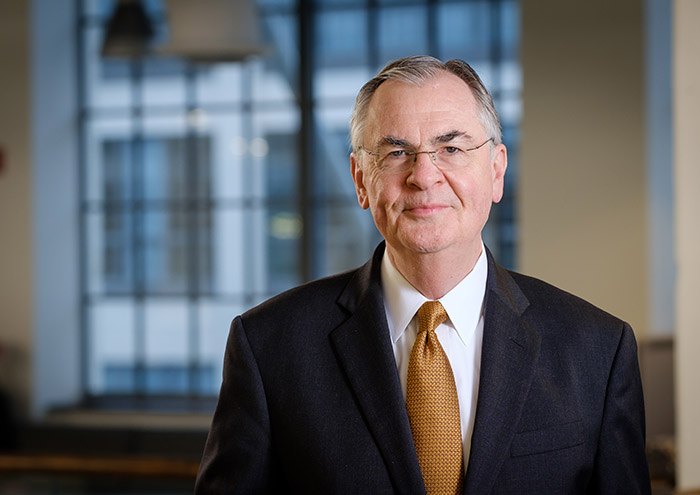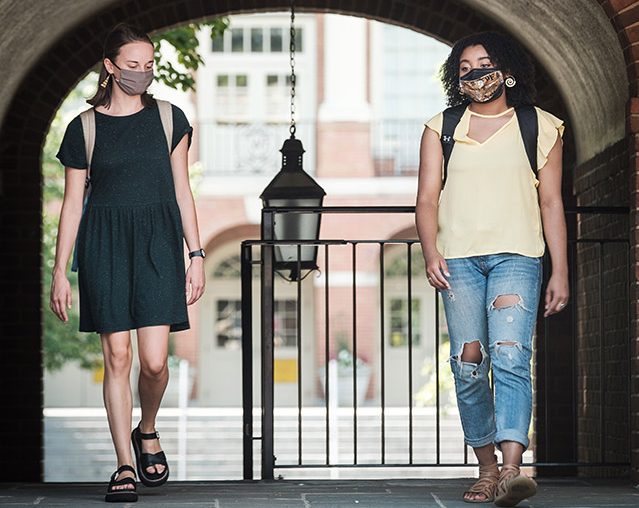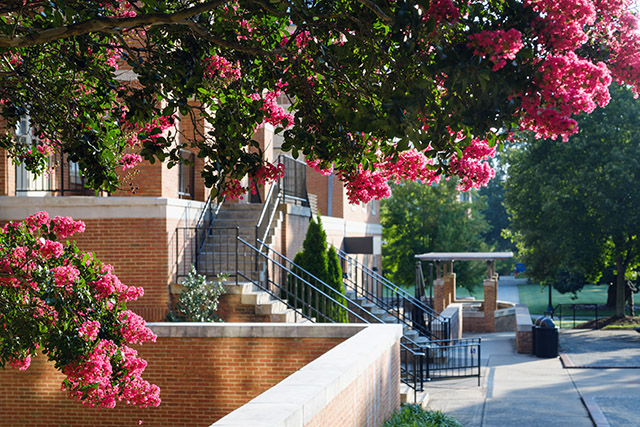
Wake Forest President Nathan O. Hatch
The longer one lives, the more “where were you” moments fill their story. People of my generation ask one another: “Where were you when John F. Kennedy was shot?” and “Where were you when Neil Armstrong walked on the moon?” For other generations, there is somber unity in wondering, “Where were you during the attacks of 9/11?” Many of these historical markers are points of connection — a shared experience that unites us, but at the same time, opens an opportunity to convey a very individual and personal story.
Where were you when the world changed? What were you doing? Whom were you with? What do you remember? How did it change you?
Where were you? In three words, we acknowledge that something affected all of us drastically, and yet we’re curious to know what it meant to you personally.
 I believe 2020 will be one of those “where were you” moments. In the last several months, we all have seen our world shift in ways we never could have imagined. We have been whipsawed by an unseen and unknown virus; we have been attempting to navigate a pending economic recession that threatens financial stability; and we are contending with the stark reality that racism, injustice and inequity are still alive and well in America. Any one of these elements would be challenging, but the convergence of three of them sets up a perfect storm. We are all facing this storm, and yet, it is different for each one of us.
I believe 2020 will be one of those “where were you” moments. In the last several months, we all have seen our world shift in ways we never could have imagined. We have been whipsawed by an unseen and unknown virus; we have been attempting to navigate a pending economic recession that threatens financial stability; and we are contending with the stark reality that racism, injustice and inequity are still alive and well in America. Any one of these elements would be challenging, but the convergence of three of them sets up a perfect storm. We are all facing this storm, and yet, it is different for each one of us.
In recent years, the good ship Wake Forest has enjoyed the wind at our back and the sun in our face. We have seen Wake Forest prosper, expand its reach, hire great people, take on innovative projects and begin to address, however imperfectly, our issues regarding race and inequity. Our course seemed set, and all we needed to do was adjust the sails and occasionally change tack.
But that world is no more. In this perfect storm, we face gale-force winds and heavy seas. What is before us is rigorous, demanding and uncertain in ways none of us has ever experienced. This is true not only of Wake Forest but for every college and university, every business, every industry, every community, trying to make sense of its mission in the teeth of this multiheaded storm. But that is where our opportunity lies; in the confluence of crisis and confusion, our opportunity is taking root.
Wake Forest exists to educate young people, committed to pursuing their potential and passion, in order to better our world. Our commitment to excellence in our academic work is unyielding, and we intentionally design our education in the context of an engaged, personal community. All the while, we are unwavering in our dedication to educating the whole person and upholding our commitment to Pro Humanitate.
In 2020, that mission and this community are being tested. This time is asking us to examine what we do and who we are. So, we must ask: What can we do, in the coming days, to sustain what is strong about the Wake Forest community? What can we jettison that is unworthy or unnecessary? How, working together in these times, can we build a better, more welcoming, more intellectually engaging, more united, more hospitable place for everyone? This is no simple task. But in this perfect storm, which invites us to try a different course, we are inspired by that challenge.
What gives me confidence in these days, with these complexities, are the people of Wake Forest.
What gives me confidence in these days, with these complexities, are the people of Wake Forest. I have never seen such creativity, teamwork, sacrifice and commitment by scores of faculty and staff, working mightily on behalf of the common good. It is something I will never forget and for which I am deeply grateful.
And outside the gates of Wake Forest, we have watched as alumni have risen to the occasion in their communities, leading and laboring with a spirit of service and sacrifice. Circumstances build character and conflict tests it, but crisis defines character. And this perfect storm has solidified so many Wake Forest faithful as true leaders of character.
We often herald our institutional commitment to Pro Humanitate — for humanity — and in these stormy days, these many pervasive acts of goodwill and generosity of spirit have been a welcomed beacon, steadying the course for this very special community of learning.
When we look back on this time, I hope we are seen as people who used the challenges we faced to redefine how we connect with each other; change our perspectives; use our voices to raise others up; push the bounds of creativity to find solutions we never knew we needed; reconsider our priorities and reorient our focus; foster a new love for our neighbor; determine what is truly important and what matters most; and learn to be remarkably flexible and resilient, patient and full of goodwill.
Where were you in 2020?
Let us all be able to say that we were in the storm. And all the while, we were becoming better because of it.



